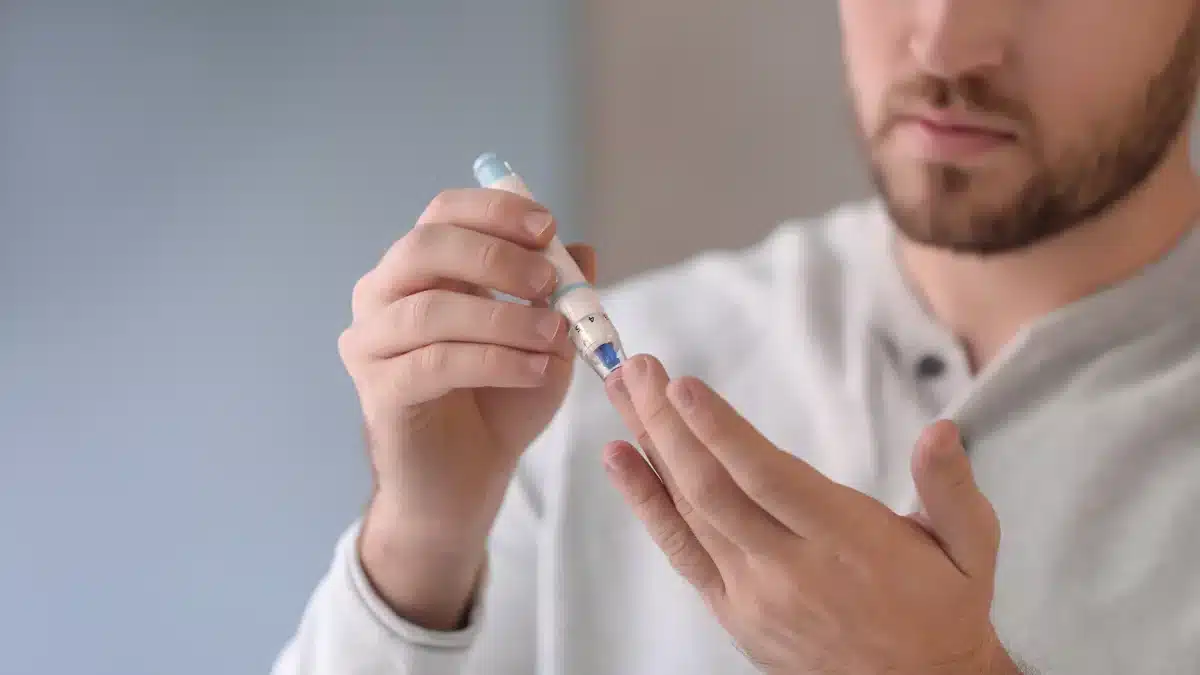The Link Between Diabetes and Erectile Dysfunction: Facts to Know
Sex delivers various health benefits, from reducing blood pressure to alleviating stress and anxiety.
However, for the more than 300 million Americans grappling with Type 2 Diabetes, their sexual experiences may not be as enjoyable.
Erection problems are common in men with Diabetes, particularly those with type 2 Diabetes.
One can say that Diabetes and Erectile Dysfunction go hand in hand.
High blood sugar levels can damage nerve and blood vessel vessels, leading to difficulties in achieving a firm erection.
Despite age being a factor, ED often manifests earlier in men with Diabetes, sometimes even before they receive a diagnosis.
Living with Erectile Dysfunction can hinder day-to-day life, causing emotional distress and disappointment.
Nevertheless, with proper healthcare assistance, individuals can easily manage ED.
This article discusses the possible connection between Diabetes and Erectile Dysfunction and the steps to regain control of one’s sex life.

How is Diabetes a risk factor for ED
Diabetes often results in ED because it disrupts the blood supply to the penis and impairs the nerves responsible for controlling an erection.
When a man is sexually aroused, his body releases a chemical known as nitric oxide into the bloodstream.
Nitric oxide instructs the arteries in the penis to relax and increases blood flow into the penis, leading to an erection.
Men with Diabetes encounter challenges related to fluctuations in their blood sugar levels, particularly when their condition is poorly managed.
High blood sugar levels reduce nitric oxide production and insufficient blood flow into the penis.
This obstruction makes it difficult to achieve and sustain an erection.
Treating Erectile Dysfunction in diabetic patients
While Diabetes can increase your susceptibility to ED, it is essential to note that it remains treatable in 95% of instances.
When Diabetes is effectively managed along with optimal blood sugar levels, the likelihood of ED is less.
This is due to the decreased risk of nerve damage.
Furthermore, various lifestyle adjustments can aid in preventing and managing ED.
These include regular physical activity, weight loss, adoption of a balanced diet, and the upkeep of proper oral hygiene.
Here are some ways to manage this condition,
Medications

If a healthcare provider diagnoses you with ED, they typically recommend oral medications as the initial treatment option.
These medications are primarily phosphodiesterase type 5 (PDE5) inhibitors that enhance blood flow to the penis by relaxing blood vessels, facilitating erections in men with Erectile Dysfunction (ED).
However, checking in with a healthcare professional before resorting to these medications is always advised.
Common medications used to address ED comprise:
- Sildenafil
- Tadalafil
- Vardenafil
- Avanafil
Other options
If an individual is unable to take oral medications for ED, a healthcare provider may recommend alternative treatments, including:
- Using suppositories in the urethra
- Administering injections into the penis
- Employing a vacuum pump
- Implanting a penile device surgically
Lifestyle changes to improve sexual health

Diabetes is a serious health condition that you grip you for life.
People with Diabetes can easily overcome ED through a lifestyle with sufficient sleep, no smoking, and stress reduction.
Diabetic patients can typically use medications for Erectile Dysfunction, as they are generally well-tolerated and effective in addressing ED concerns.
- Eat Right: To manage Diabetes and reduce the chances of erectile dysfunction (ED), eat foods that help control blood sugar, like berries and green vegetables
- Limit Alcohol: Drinking too much damages blood vessels and can lead to ED. Even a little alcohol can make it hard to get an erection
- Quit Smoking: Smoking narrows blood vessels and reduces blood flow to the penis, making ED worse
- Stay Active: Regular exercise helps control blood sugar, improves circulation, reduces stress, and boosts energy. All of these can help prevent ED
- Proper Sleep: Lack of sleep can cause fatigue, leading to sexual problems. Make sure you get sufficient rest
- Reduce Stress: Stress can affect your ability to get aroused and have an erection.
Exercise, meditation, and doing things you enjoy can help reduce stress
If you’re feeling anxious or depressed, talk to your doctor. They can connect you with a therapist to help manage stress and other issues.

Conclusion
Diabetes significantly increases the risk of ED due to its impact on blood supply and nerve function, which is crucial for achieving and maintaining an erection.
While living with ED can be emotionally distressing, it is manageable.
Effective Diabetes management, lifestyle changes, and medication like Sildenafil and Tadalafil can improve sexual health.
At last, adopting a healthier lifestyle, quitting smoking, maintaining a balanced diet, and managing weight are essential steps toward overall well-being and addressing ED.
Understanding the relation between Diabetes and Erectile Dysfunction empowers individuals to take control of their sex life and overall health.
Frequently Asked Questions
Can Erectile Dysfunction caused by Diabetes be reversed?
Erectile Dysfunction caused by Diabetes can often be improved with proper Diabetes management, lifestyle changes, and medical treatments, but complete reversal may not always be possible.
How do people with diabetes get rid of Erectile Dysfunction?
People with diabetes can alleviate Erectile Dysfunction by managing Diabetes, adopting a healthy lifestyle, seeking medical treatment, and addressing psychological factors with counseling or therapy.
Can a diabetic man get a hard-on?
Yes, a diabetic man can achieve an erection. However, Diabetes can sometimes contribute to Erectile Dysfunction (ED). Proper Diabetes management and various treatments are available to address ED in diabetic individuals, allowing them to attain and maintain erections.
How can a man with diabetes overcome Erectile Dysfunction?
A man with Diabetes can overcome Erectile Dysfunction (ED) by managing Diabetes, adopting a healthy lifestyle, seeking medical treatment, addressing psychological factors, and considering medical devices as needed, all under the guidance of a healthcare provider.
Is Viagra OK for people with diabetes?
Viagra (Sildenafil) is generally safe for people with diabetes and is commonly prescribed to treat Erectile Dysfunction (ED) in diabetic individuals. However, it should be used under medical supervision and consideration of any potential interactions with other medications or health conditions.






